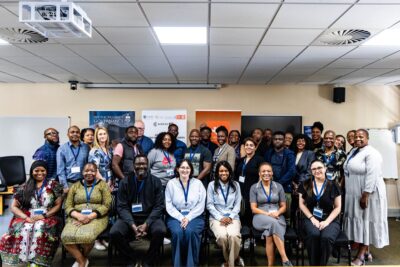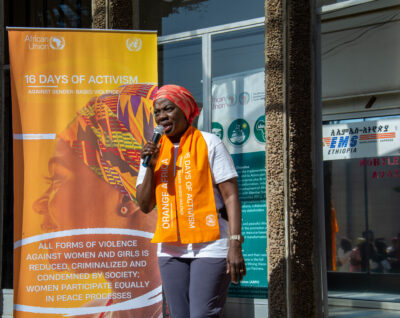In Whites, Jews, and Us, Houria Bouteldja simultaneously lays bare a grotesque impasse faced by the “victims of empire” (the “indigenous,” she calls them) and the hypocrisy enacted by Europe, specifically the French Left. In her formulations, there are no tidy categories of us, them, guilty, or innocent. Instead, a messy liminality informs even her own existence; she exists between black and white, global north and south, innocence and guilt. This liminal space is the raw material for her essays.
Bouteldja’s book is a takedown of white supremacy in its cultural, economic, and political forms. Yet the white supremacy that Bouteldja demystifies is not an objective category but a relational one. She herself is delicately positioned not as part of the global south, but above it. “To the third world,” she writes, “we are white.” Her “crime,” as she calls it, is buffered by “the IMF, NATO, multinationals, the banking system . . . Between me and my crime, there is my father’s sweat and salary, social welfare, paid leave, labor laws . . . my passport.” She, too, is complicit, then, “in the exploitation of the South.”
As such, her work serves as a challenge to the very conception of white supremacy, a rebuke to those who sloppily invoke the term “person of color” without attending to the nuances of global geopolitics or regional inequality. Whiteness and blackness only exist in their relation to one another and to processes of capitalist exploitation and imperialist violence. (Her text reminds me that I have dutifully paid taxes that devastated Iraq.)
Then, there is the question of hypocrisy. Today, as Professor Tariq Ramadan faces rape charges, critics of the carceral state and its attendant technologies of racism rush to his defense. We do not yet know whether the preeminent Muslim scholar is guilty of rape. We do know that the French state is guilty of violating his rights, placing him in solitary confinement, and limiting his access to medical care. In public discourse, Ramadan’s case seems to offer itself to only two simplistic camps: he is either a Muslim rapist brought to justice by French authorities or the victim of a perverse carceral feminism unleashed on men of color. Can one simultaneously disavow French racism while tackling what Bouteldja calls the “indigenous patriarchy” that has allowed supporters of Ramadan to easily dismiss these allegations as an enactment of European racism?
In a camera obscura-like inversion of the Ramadan case, one may recall the gentle handling of Dominique Strauss-Kahn, who stood accused of assaulting his hotel maid. Writes Bouteldja, the white world “ignores any kind of compassion vis a vis victims when the perpetrator is white and high-ranking. On the other hand, against our brothers, it’s a real corrida: the matadors are let loose.”
She returns throughout the text to the question of hypocrisy, such we see in Jean-Paul Sartre’s simultaneous condemnation of colonialism and support for the Zionist project. “Sartre,” she says, “did not know how to radically betray his race.” He would support the Cuban and Viet Minh revolutions, yet nothing could “dethrone the legitimate existence of Israel.” His fierce Zionism would even lead Frantz Fanon’s widow to request that Sartre’s preface to her late husband’s Wretched of the Earth be removed from future editions. Bouteldja’s interlocution with Sartre echoes Edward Said’s own meeting with Simone de Beauvoir, “a serious disappointment, flouncing out of the room in a cloud of opinionated babble about Islam and the veiling of women,” he would recall.
The question of Palestine serves as a fulcrum throughout the text, both as it relates to white France and to “whitened” Jews. To purge itself of its Jews, to solve the “Jewish question,” Arthur Balfour and white Europe created the “Palestine question.” “When they gave you Israel,” Bouteldja addresses Jews, “they made you into the most passionate defenders of Empire on Arab soil.” Though Bouteldja (like many defenders of Palestine) has been branded an anti-Semite, she reminds her readers that anti-Semitism is a quintessentially modern and Western phenomenon; that the very creation of a Jewish “homeland” was itself rooted in a virulent European anti-Semitism.
Two figures in the text, novelist-activist Jean Genet and Bouteldja’s own cousin Boujemaa in Algeria, are strikingly indifferent to the figure of Hitler. I believe Bouteldja presents us with Genet and Boujemaa in order to further illuminate European hypocrisy. Regarding Genet, she asks, “Could he revile Hitler and spare France, which had shown itself ‘rotten [in its] treatment of people in Indochina and Algeria, in Madagascar?’” As such, she follows Aimé Césaire in Discourse on Colonialism: Hitler was only offensive because he did within Europe that which was traditionally done outside of it, to Europe’s own subjects. This neat European binarism, this expectation of “civility” between whites, has a long history. (Bombing, for instance, was initially meant to be a war technology used only against uncivilized, colonial subjects.) Violation of intra-European civility was Hitler’s true crime. “If the techniques of mass massacre revealed all their deficiency in the concentration camps, she writes, “it is because they have been tested on us and thus made all the more efficient.”
Meanwhile, in Algeria, Boujemaa has never even heard of Hitler. Initially appalled, Bouteldja ultimately accepts that her cousin could not or would not care about Hitler. For Bouteldja, like for Cesaire, Europe’s response to Hitler lays bare a quintessential European hypocrisy. Today, it is this hypocrisy that allows the West to mourn the victims of the massacres in the 11th arrondissement while, days before, those destroyed by the same forces in Beirut went unrecognized.
Another motif throughout the book, that of innocence, explains this hypocrisy. Innocence, itself a feminized construct with Christian religious roots, lends itself to a hollow faith. An unshakeable faith in white innocence explains how good intentions are so frequently invoked in neoliberal discourse. Faith in white innocence tells us the officer was scared when he discharged his weapon, that the juror was confused when she condemned the innocent man, that Americans believed Saddam had WMDs (Weapons of Mass Destruction). For James Baldwin, it is precisely this “innocence which constitutes the crime.” Liberal public discourse buys in to white innocence hook, line, and sinker. Liberals tweet #FreeMelania, for she must be trapped in her marriage to the tyrant; they gasp when Rose is revealed as a villain in Get Out.
Following Baldwin, Bouteldja indicts this innocence itself. She peels back its feminized veneer, revealing a rather masculinist self-assertion, the Cartesian “I” which, she concludes, is a conquering “I.” Thus, she traces a continuity between a Christian, feminized innocence and a masculinist Cartesian self. For Ramon Grosfoguel, “this ‘I’ replaces God as the new foundation of knowledge and its attributes constitute a secularization of the attributes of the Christian God.”
Bouteldja’s book caused a maelstrom because it was unapologetic, marked with none of the lilting softness demanded of us when we speak about race, marked with no quarter for white fragility nor concern for whom it might offend. She claims this crudeness as a very marker of her social position: “The dispossessed indigenous person is vulgar. The white dispossessor is refined.” What are civility, vulgarity, and manners in a world shaped enduringly by the brutality of empire? “Many genocides have been glorified around dinner tables adorned with forks and knives made from actual silver,” writes Steven Salaita, “without a single inappropriate speech act having occurred.”
Indeed, in an uneasy twist, Bouteldja’s decolonial stance means she will not even bother to salvage feminism. (Decolonial feminism, perhaps, but that too with reservations.) “Reproaching us for not being feminist is like reproaching the poor person for not eating caviar,” she says, for feminism “would always be contained within the framework of liberal democracies, founded on the idea of the quality of citizens, and in which white women obtained rights because of their own struggles but also thanks to the Imperial domination.” She disavows feminism in spite of being resolutely anti-patriarchal because of her wholesale rejection of Feminism™.
Her book is controversial because it is a refusal to participate in respectability politics. It is this refusal, this rejection of the hypocrisies and veneers of modern whiteness, which allow her to reclaim dignity.
Instead, it is an invitation to practice revolutionary love, a concept she finds in the work of Chela Sandoval. While her theorization of revolutionary love is sparse in these pages, I suppose this is an invitation to the reader to formulate her own conception of what it might mean. I read it as an invitation to whites to practice the solidarity of Jean Genet and, I would add, of John Brown and the Young Patriots. I read it as a resolute dismissal of “the conquering ‘I’” and an indictment of the hollowness of white innocence.













